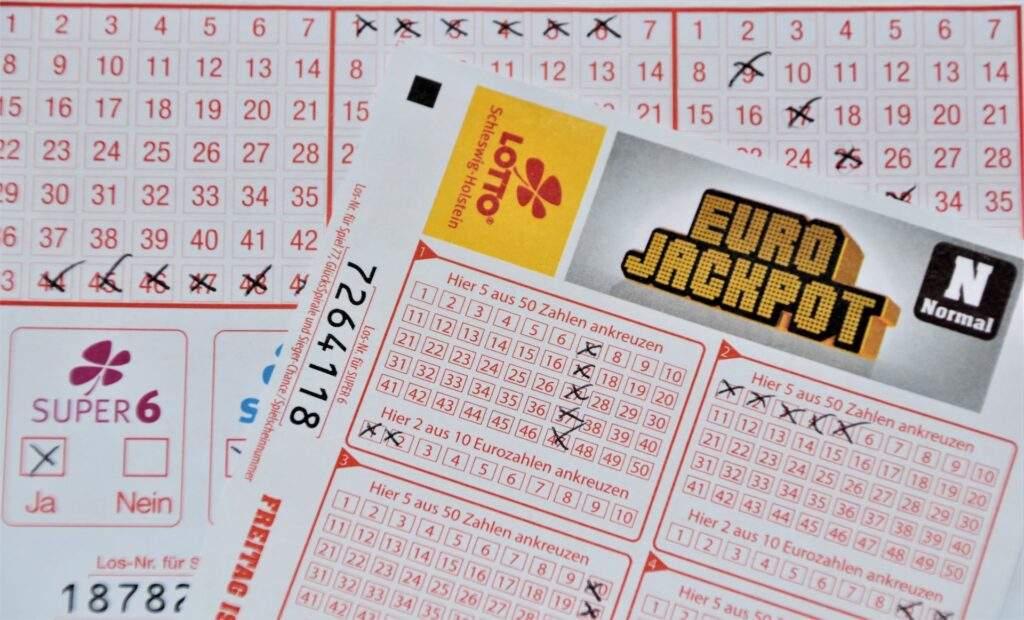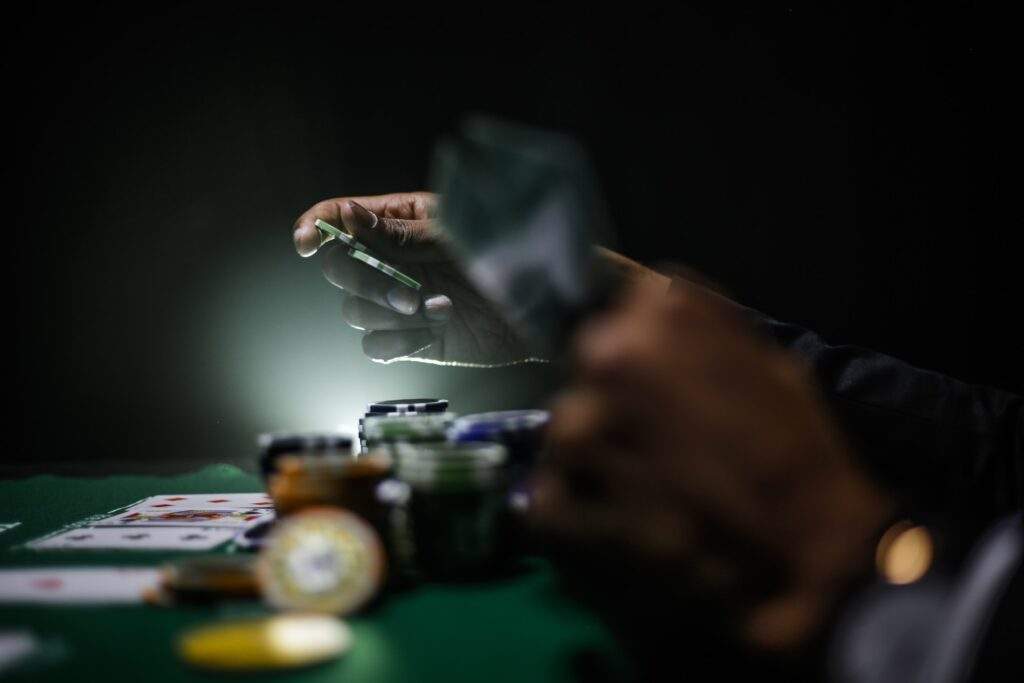Introduction:
While gambling can be an exciting and enjoyable activity, it’s essential to be aware of the potential risks and challenges associated with addiction. Recognizing the signs of gambling addiction and implementing effective strategies for responsible gambling is crucial for maintaining control and enjoying a healthy relationship with this form of entertainment. In this article, we delve into the topic of recognizing addiction, understanding its causes, and providing practical tips and resources for overcoming it. By promoting responsible gambling practices, we aim to help individuals make informed decisions, maintain control, and prevent the detrimental effects of addiction.
We will start by examining the warning signs of gambling addiction, including preoccupation with gambling activities, a compulsion to gamble, and an inability to stop or cut back regardless of any financial, personal, and social repercussions. Gambling addicts become consumed by their activities, losing sight of any long-term goals or obligations in the process. These patterns of behavior will strain relationships, affect work or school performance, and lead to financial problems. It’s important to recognize that these symptoms can manifest in different ways for different people, as everyone experiences gambling addiction differently. That’s why it’s important to be mindful and know when to seek help.
Those who are struggling with compulsive gambling may feel overwhelmed or unable to stop on their own, which is why it’s important to reach out for support. Many organizations and programs provide counseling, support groups, and other resources to help people cope with their addiction and recovery. Some programs even offer online and telephone counseling, so anyone struggling with gambling addiction can access the help they need. It’s also important to be aware of any triggers that can lead to gambling and to make sure to practice healthy habits and safe behaviors when engaging in activities.
Additionally, friends and family members can provide important support and encouragement. It can be helpful to set boundaries with family and friends and establish a support network from which to draw strength and comfort. People recovering from gambling addiction can also focus on healthy lifestyle practices such as exercise, healthy nutrition, and maintaining a regular sleep schedule. These activities can help reduce stress and provide a welcoming distraction from the temptation to gamble.
Finally, those struggling with gambling addiction should avoid any environments or activities that might cause them to relapse. It is important to remember that the road to recovery is long and requires hard work and dedication, but it is possible. With the right help and support, those who suffer from compulsive gambling can make great progress in overcoming their addiction.

Understanding Gambling Addiction:
Gambling addiction, also known as compulsive gambling or gambling disorder, is a behavioral disorder characterized by the inability to control or stop gambling despite negative consequences. Here are some important aspects to consider:
- Signs of Gambling Addiction: Recognizing the signs of gambling addiction is the first step toward addressing the problem. Common signs include a preoccupation with gambling, an inability to control or stop gambling, neglecting responsibilities, lying about gambling habits, chasing losses, and experiencing financial, social, or emotional problems due to gambling.
- Causes of Gambling Addiction: Gambling addiction is influenced by a combination of factors, including genetic, psychological, and environmental elements. Risk factors such as a family history of addiction, mental health disorders, impulsivity, and a lack of social support can contribute to the development of gambling addiction.
- Escalation of Gambling Addiction: Gambling addiction often escalates over time, with individuals engaging in more frequent and intense gambling sessions. The thrill of winning, the escape from reality, and the urge to recoup losses can reinforce addictive behaviors, making it challenging to stop.
Other signs like changes in mood, irritability, and restlessness when attempting to stop gambling may also indicate an addiction. Gambling addicts may also exhibit an obsessive need to be secretive about their gambling activities or to borrow money to fund their gambling. Furthermore, they might become defensive and isolated when confronted about problem gambling.
They may also become more inclined to take larger risks during their gambling sessions, often to a point where it’s difficult to manage their losses. They may also not engage in activities that do not involve gambling. They may not be able to understand the consequences of their actions and could take dangerous risks to get money for gambling.
They may be lying, borrowing, and stealing money to cope with their gambling addiction. They may become socially isolated, risking relationships with friends and family. They may also become financially dependent on their gambling winnings, which could have a devastating effect on their future. They may also develop difficulties with relationships, work, and studies.
Gambling addiction can also take a toll on one’s mental health as the gambler may experience intense feelings of guilt, shame, and depression. Cognitive difficulties such as difficulty with concentration, decision-making, and rational thinking can also arise, leading to further difficulties. As the problem progresses, it may result in severe distress that can lead to suicidal thoughts and self-destructive behavior. It is important to seek help if you or a loved one is struggling with gambling addiction as it can have a huge negative impact on one’s life.

Strategies for Responsible Gambling:
Promoting responsible gambling practices is essential for maintaining control and preventing the negative consequences of addiction. Here are some strategies to help you establish responsible gambling habits:
- Self-Reflection and Acceptance: Acknowledge that you may have a gambling problem and take responsibility for your actions. Admitting the issue is the first step toward seeking help and making positive changes.
- Set Limits: Establish limits on your gambling activities, including time spent and money wagered. Stick to these limits and avoid exceeding them, even when faced with the temptation to chase losses or prolong your gambling sessions.
- Take Breaks: Incorporate regular breaks from gambling into your routine. This allows you to reassess your gambling habits, maintain a healthy balance in your life, and prevent excessive and impulsive gambling.
- Seek Support: Reach out to trusted friends, family members, or support groups for encouragement, understanding, and accountability. Sharing your struggles with others who have had similar experiences can provide valuable support on your journey toward recovery.
- Utilize Self-Exclusion: Many online casinos offer self-exclusion programs that allow you to restrict your access to their platforms for a specific period. Consider utilizing these options if you find it challenging to control your gambling impulses.
- Seek Professional Help: If you believe you have a gambling addiction, seeking professional help is vital. Professional counselors, therapists, or addiction specialists can provide guidance, support, and therapeutic interventions to help you address the underlying causes of your addiction.
- Financial Responsibility: Take control of your finances by setting strict budgets for gambling activities. Avoid using credit cards or borrowing money for gambling purposes. Seek financial counseling if you require assistance in managing debts or financial difficulties.
- Engage in Healthy Alternatives: Explore alternative activities that provide enjoyment and fulfillment without the risks associated with gambling. Pursue hobbies, engage in physical exercise, practice mindfulness or meditation, or participate in social activities that do not involve gambling.
Participate in an online or in-person support group for problem gamblers or family members of problem gamblers. They can provide helpful insight, encouragement, and resources. Additionally, you may benefit from talking to a trained and licensed mental health professional. A therapist can help you better understand your relationship with gambling and the triggers and risk factors for gambling. They can also give you helpful coping strategies and support you through any challenges you might have with recovery. Even if you have a history of gambling, you may still benefit from consultation and support.
A therapist can provide evidence-based treatments for problem gambling like cognitive behavioral therapy (CBT), motivational interviewing, and relapse prevention. The goal of these treatments is to help you develop a better understanding of your thoughts, feelings, and behaviors, and learn how to manage them so you can successfully recover and rebuild a healthier relationship with gambling. Additionally, if you have a loved one struggling with problem gambling, you may benefit from seeking family counseling. This type of counseling focuses on building effective communication and conflict-resolution skills that can help family members affected by problem gambling.
Another form of therapy that can be used to treat problem gambling is group counseling. Group counseling can help provide an environment of support and understanding, and give people the chance to learn from one another’s experiences with problem gambling. It can also offer the chance to receive feedback from peers and a therapist while developing and practicing new and healthier coping strategies. These are just a few of the many types of evidence-based treatments available, and a therapist can help you choose the best option based on your individual needs.
Group counseling allows gamblers to develop healthier habits and skills that can help them manage their addiction in the future. It is important to choose a counselor who is experienced in addiction counseling, so they can guide the group towards more effective coping strategies. Additionally, having a support system for other people who are facing the same issues can be invaluable, as it provides understanding and empathy while helping to reduce feelings of isolation. Ultimately, group counseling can be a powerful tool for those struggling with problem gambling.

Seeking Help and Support:
Overcoming gambling addiction requires a strong support system and a commitment to change. Here are some resources that can assist:
- Gamblers Anonymous (GA): GA is a support group modeled after Alcoholics Anonymous that offers meetings, support, and a 12-step program for individuals struggling with gambling addiction.
- National Council on Problem Gambling (NCPG): The NCPG provides information, resources, and a helpline for individuals affected by gambling addiction. They offer support and connect individuals with local treatment options.
- Therapy and Counseling: Consider seeking individual therapy or counseling to address the underlying psychological factors contributing to your addiction. Cognitive-behavioral therapy (CBT) and other evidence-based therapies can be effective in treating gambling disorders.
- Helpline Services: Many countries have helpline services dedicated to assisting individuals with gambling addiction. These helplines provide confidential support, information, and referrals to local resources.
- Online Support Communities: Online communities and forums dedicated to gambling addiction recovery can provide a supportive environment where individuals can share experiences, seek advice, and find inspiration.
Such online support communities can provide an invaluable source of information, advice, and support from those who have experienced similar situations. Members of these communities can become familiar with and connect with other people who are in recovery. This can create a sense of social connection, provide a sense of understanding, and help members stay accountable for their recovery. Additionally, many support communities also provide access to other resources that can assist in recovery such as counselors, therapists, and support hotlines. These resources can help individuals to refocus their energy on their recovery and to tackle any issues that they may be facing.
For many, the feeling of belonging and being supported can be a powerful motivator for staying on track. Additionally, these online support communities can give individuals a platform to share a variety of experiences, gain insights from professionals, and find support and encouragement from peers, all without having to leave the comfort of their homes. Accessing these resources can help anyone in recovery feel empowered to keep reaching for their goals and stay on the path to overall wellness.
By taking advantage of the benefits of online support communities, recovering individuals have a larger support system than ever before. They can access information, get advice, and interact with people who understand their struggles, whenever and wherever they need it. Online communities provide a sense of solidarity and community that many individuals find invaluable. Furthermore, many communities have developed specialized programs such as self-help groups and virtual events to encourage continued progress and growth. Ultimately, these are essential tools that can be used to help foster and sustain long-term and successful recoveries.
By engaging with these online support systems, many individuals also have access to the knowledge and resources of some of the top experts in the field of addiction and treatment, including licensed counselors and experienced therapists. They are also able to access valuable resources such as informational articles, videos, and podcasts. Additionally, access to a supportive community can reduce feelings of isolation, offer accountability, and build sustainable recovery habits. Ultimately, online support systems provide a variety of unique resources to help individuals make the best of their recoveries and lead healthy, fulfilled lives.
Conclusion:
Recognizing addiction and implementing responsible gambling strategies are essential for maintaining control and preventing the negative impact of gambling addiction. By understanding the signs of addiction, accepting personal responsibility, setting limits, seeking support, and utilizing available resources, individuals can take proactive steps toward recovery. Remember, overcoming addiction is a journey that requires determination, perseverance, and a willingness to make positive changes. Reach out for help, surround yourself with support, and embrace a healthier and more fulfilling life beyond the grip of gambling addiction.
Getting help with a gambling problem, either through self-help programs, professional counseling, or specialized treatment centers, is an important part of the recovery process. With help, individuals can recover from their addictive behaviors and establish healthier relationships with money, time, and gambling. Treating addiction requires a holistic approach that combines personal responsibility with treatment and support from trusted family, friends, and professionals. Treatment options include cognitive behavioral therapy, motivational interviewing, and 12-step programs. Addiction treatment can be tailored to individual needs and can help people overcome gambling addiction and gain control of their lives.
Those seeking help must also address any underlying issues that might be driving the problem. This includes mental health issues such as depression or anxiety as well as any financial problems resulting from compulsive gambling. Substance abuse, including alcohol or drug addiction, can also be addressed, as they can be linked to gambling problems. Treatment should also provide tools and resources to help individuals avoid relapse and remain accountable for their recovery. With the help of professionals and a willing support network, individuals can confront their gambling addiction and reclaim their lives.
Recovery from gambling addiction is not easy and success requires effort and commitment. It is important to have access to self-help tools and resources, as well as counseling and support from peers. People facing compulsive gambling can feel isolated and unsupported, so it is essential to find friends, family, or support groups who understand and can provide a safe place to discuss successes and failures. Group meetings with others recovering from gambling can also provide hope and encouragement. Finally, it is essential for those recovering from gambling addiction to develop healthier coping skills and lifestyle choices that can replace gambling and help prevent and manage relapse.
Finding new hobbies or activities that can help to keep the focus off gambling is recommended. Taking up exercise, arts, crafts, or a new language can be good distractions. The important thing is to take the steps necessary to stay away from places and activities where gambling is present. Taking responsibility for one’s well-being is a key part of overcoming gambling addiction and embracing a life of sobriety.
It is also helpful to create a balanced budget plan and simplify life’s complex responsibilities. Learning to recognize the early signs of relapse is also important. These can be physical, mental, or emotional cues to look out for. It is easy to convince oneself that gambling could be just one small time, but remembering it should be avoided at all costs is important for full recovery. With time and effort, those affected by gambling addiction can move forward to a more fulfilling and self-satisfying life.